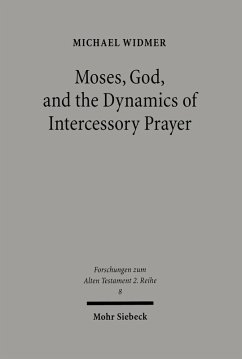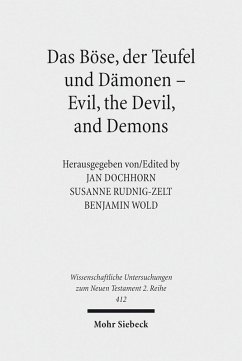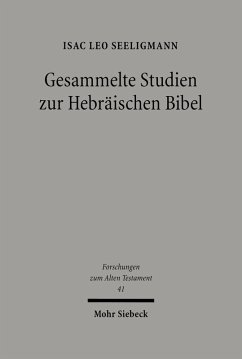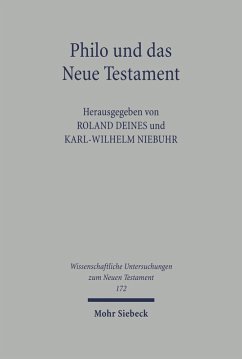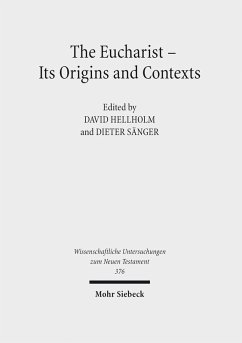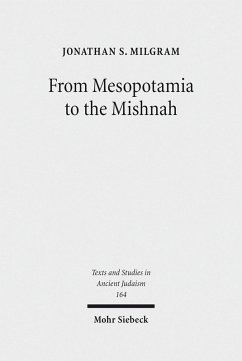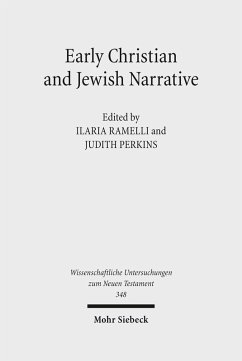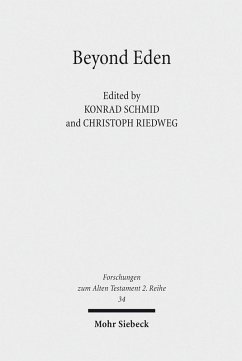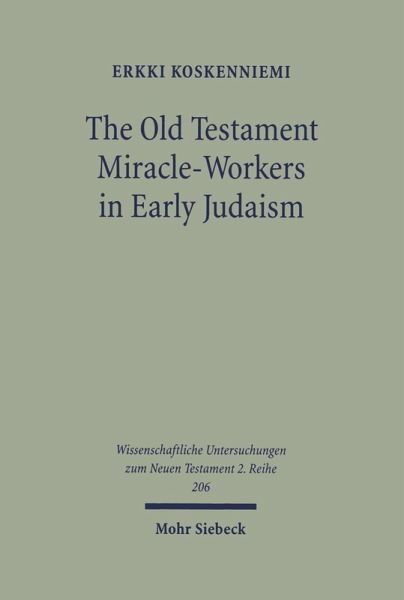
The Old Testament Miracle-Workers in Early Judaism (eBook, PDF)

PAYBACK Punkte
0 °P sammeln!
Erkki Koskenniemi analyzes the most important early Jewish texts, which attribute miracles to people mentioned in the Old Testament. He investigates the miracles of Moses, Elijah and Elisha, but also, for example, the extra-biblical deeds of men like Abraham, David and Solomon. The author looks at the development of the traditional elements of the miracle stories and the theological intentions of every writer who deals with these stories. The Jewish tradition of miracle-workers is rich and multifaceted. There was no rule that the biblical stories should be retold as they were written. Miracles...
Erkki Koskenniemi analyzes the most important early Jewish texts, which attribute miracles to people mentioned in the Old Testament. He investigates the miracles of Moses, Elijah and Elisha, but also, for example, the extra-biblical deeds of men like Abraham, David and Solomon. The author looks at the development of the traditional elements of the miracle stories and the theological intentions of every writer who deals with these stories. The Jewish tradition of miracle-workers is rich and multifaceted. There was no rule that the biblical stories should be retold as they were written. Miracles could thus be connected with different types of historiography or even, in one case, with a tragedy, which was an imitation of Aeschylus' great work. It didn't take long for the growing tradition to develop new shades and colors for the old stories: for example, the struggle with evil powers is involved in the retold stories. Several authors also hoped for the repetition of the saving miracles of the past, especially of the Exodus, God's help in the desert and the great deeds of Elijah. The investigation of this rich tradition helps us to better understand the early Jewish belief as well as the early Christian world. Born 1956; Classical studies at the University of Turku; 1979 Mag. phil; 1984 Mag. theol.; 1992 PhD at Åbo Akademi; Adjunct Professor at the University of Helsinki, Joensuu and of Åbo Akademi; teacher of biblical theology in Lutheran Evangelical Association in Finland.
Dieser Download kann aus rechtlichen Gründen nur mit Rechnungsadresse in A, B, BG, CY, CZ, D, DK, EW, E, FIN, F, GR, HR, H, IRL, I, LT, L, LR, M, NL, PL, P, R, S, SLO, SK ausgeliefert werden.




